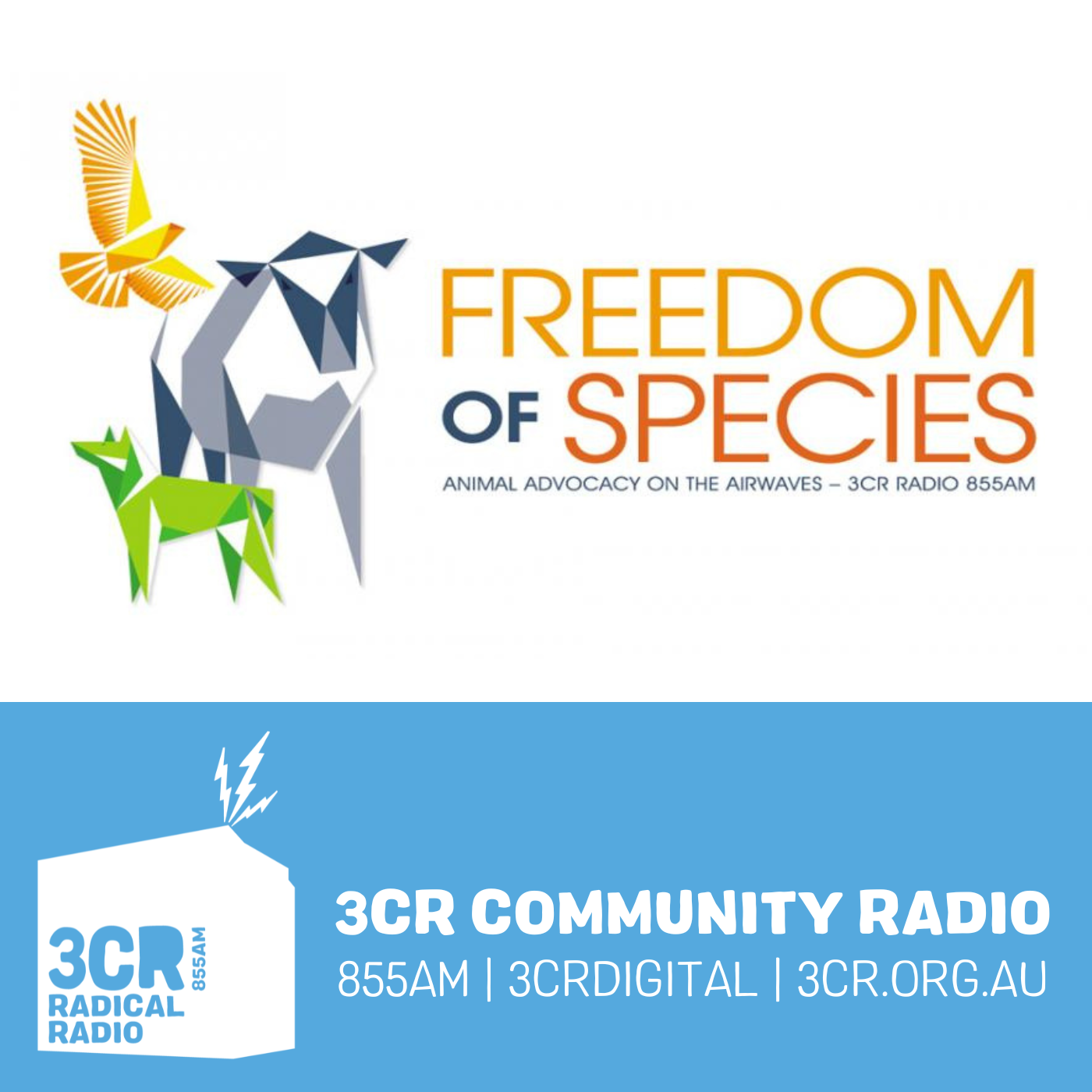The Animal Turn
Animals are increasingly at the forefront of research questions – Not as shadows to human stories, or as beings we want to understand biologically, or for purely our benefit – but as beings who have histories, stories, and geographies of their own. Each season is set around themes with each episode unpacking a particular animal turn concept and its significance therein. Join Claudia Hirtenfelder as she delves into some of the most important ideas emerging out of this recent turn in scholarship, thinking, and being.
The Animal Turn
S5E9: One Health with Nina Jamal
Use Left/Right to seek, Home/End to jump to start or end. Hold shift to jump forward or backward.
In this episode Claudia speaks to Nina Jamal about One Health. They discuss the changing definition of One Health and its significance for biosecurity and animals. They spend time thinking through the challenges and opportunities, particularly at the level of national and international policy.
Date Recorded: 1 December 2022
Nina Jamal is leading FOUR PAWS’ efforts on Pandemics & Animal Welfare and campaign strategies. Before taking on that role and since 2013, Nina led the International Campaigns on Farm Animals and Nutrition Campaigns. Nina has also worked in the climate movement on international policy and campaigns as well as in the private sector and UNIDO. Her background is in Environmental Health Sciences, Public Health and International Environmental Policy. Connect with Nina (@ninajamal10) and Four Paws (@fourpawsint) on Twitter. Also check out the Four Paws website (www.four-paws.org).
Claudia (Towne) Hirtenfelder is the founder and host of The Animal Turn. She is a PhD Candidate in Geography and Planning at Queen’s University and is currently undertaking her own research project looking at the geographical and historical relationships between animals (specifically cows) and cities. She was awarded the AASA Award for Popular Communication for her work on the podcast. Contact Claudia via email (info@theanimalturnpodcast.com) or follow her on Twitter (@ClaudiaFTowne).
Featured:
- How to Prevent the next Pandemic? (Brochure) By Four Paws
- How to Prevent the next Pandemic? (Full Report) By Four Paws
The Animal Turn is part of the iROAR, an Animals Podcasting Network and can also be found on A.P.P.L.E, Twitter, and Instagram
Thank you to Animals in Philosophy, Politics, Law
A.P.P.L.EAnimals in Politics, Law, and Ethics researches how we live in interspecies societies and polities.
Biosecurities Research Collective
The Biosecurities and Urban Governance Research brings together scholars interested in biosecurity.
iROAR Network
iROAR brings together podcasts that aim is to make the world a better place for animals.
Disclaimer: This post contains affiliate links. If you make a purchase, I may receive a commission at no extra cost to you.
The Animal Turn is hosted and produced by Claudia Hirtenfelder and is part of the iROAR Network. Learn more on our website.
- Leave a Review on Podchaser
- Check out The Animal Turn Merch.
- Support us on Patreon, Buy Me a Coffee, and Buzzsprout.
00:00 - Introduction
03:23 – Welcome
- One Health has come up in almost every episode so important to focus on what it is.
- Nina works at Four Paws International with a background in Environmental Sciences and Public Health
- Nina works on and tries to prevent pandemics.
- Four Paws works on animal welfare and suffering, tackling illegal wildlife trade, wildlife markets, fur farming, etc - all of these are triggers for spillover
- Important to engage in international health debate
07:00 – General Idea of One Health
- “The main premise that the health and welfare of animals, humans, and the environment are interlinked. We cannot view any of them in isolation. However, One Health is an evolving concept,” Nina
- 1984 – One Medicine approach.
- Have to talk about the environment so it was added in 2004, a time when several zoonotic outbreaks were happening
- Different practitioners have different focal points
- In 2021, there was a new definition by the One Health High Level Expert Panel made up of 26 experts, selected by international organisations. Their definition:
- “One health is an integrated, unifying approach that aims to sustainably balance and optimize the health of people, animals, and ecosystems. And it recognises that the health of humans, domestic and wild animals, plants, and the wider environment including ecosystems are closely interlinked and interdependent.”
- This new definition is a watershed moment.
- Ecocentric view can sometimes neglect animals
- World Health Organisation developing a pandemic treaty and a key phrase in the negotiations were One Health but no one was really talking about what it means
- It is about what it means, who is defining what it means, and what it should mean
- Historically it was about surveillance but what it should mean, it is also about how human activities have impacts. We need to change the way we treat animals and environments
- INB is using the high level definition but if you look at the operational elements organisations are going back to surveillance
14:50 – Driving pathogens
- What are the big things we are talking about when we are talking about prevention.
- Deforestation and habitat loss are a massive problem, we are using land to feed farm animals. 70% of agricultural land is being used to keep and feed agricultural animals. This is inefficient and risky
- Animals in stressful environments makes them more receptive to illness, such as factory and fur farming
- Places in which there are poor sanitary conditions and mixing of species who are not normally in contact
- Culling of animals in fur farms because of pathogen spreads
- Humans are in contact with nature and animals, the risk emerges when patterns change
- Sometimes animal are asymptomatic and sometimes they are sick. In both cases there are risks of spillover to humans
22:00 – One Welfare
- In 2020, Four Paws published a report in which they interviewed experts about pandemic prevention.
- Four Paws concerned about One Health because it was too anthropocentric, which is why they preferred the One Welfare approach. It is not only about the absence of disease, but it is also about welfare.
- For example, Broiler chickens grown as quickly as possible which makes them sick and they get antibiotics. Focused on performance instead of care. One Welfare would have small holder farmers that work with local farmers are diverse broilers in an outdoor system that fits their needs
- “Through a One Welfare Approach everyone benefits”
- “To what extent is a welfare policy just sustaining what are often quite abusive models for how animals are kept?” Claudia
- We have to phase out factory farming and move toward plant based diets – this will mean more sustainable food systems. This will ensure food security
28:20 – Antimicrobial Resistance
- Over 80% of antibiotics in the world are going to animals and AMR is killing large amounts of animals
- We are inappropriately using antibiotics on animals, broiler chickens get antibiotics for intestine and bone issues.
- We ae enabling superbugs
- “We have this idea that technology is going to save us,” Claudia
- National Action plans do not include measures to improve the keeping conditions of animals, these root causes are not part of the plan
- “We cannot keep consuming the same amount of animals and solve the antimicrobial resistance problem,” Nina
- Thomas Hartung noted how it is not economically feasible to rely on new drugs
34:20 – Privileging of economics
- “Even here when we are speaking about human health, and animal health, are we still just putting economics at the forefront?” Claudia
- There are conversations about a paradigm shift – The Council on the Economic of Health for All. We need to view health as an investment not a cost.
- “We cannot continue focusing on GDP as the one indicator of success of a government or a system, we need to develop other indicators,” Nina
- The Economics of Wellbeing is getting more traction – evaluate the success of sectors not on growth but on how they enable wellbeing
37:30 – Global policies and breaking silos
- We have to talk about global inequalities will lead to wealthy countries just exporting their problems.
- U.S. and Europe are importing soy from forests logged in the global south, we destroy nature beyond our borders
- The new One Health framing and the pandemic instrument give hope because it is rooted in collaboration
- We can longer treat health is a silo
- Ministry of Health and Ministry o Agriculture have to talk to each other
- Whole of Society Approach – will this intention make its way into international strategies?
- Decoupling of economics and extending beyond it
- Vets should be advocating on behalf of animal health, not industry interests
- “Big health impacts, are big economic impacts,” Claudia
43:13 – Moving forward
- “We are living in a crisis and this crisis and this crisis builds a very strong case for bold action,” Nina
- Move away from factory farming, illegal wildlife trade, deforestation, biodiversity loss.
- Measures need to be sustainable.
- Investments in positive practices at the national and international levels
- Change in priorities, move towards an economy of wellbeing
- People linked to high risk practices and vulnerable communities – which means if we expect a society to move away from risky practices we have to develop alternative sources of livelihoods.
- People and animals at the interface are part of the solution
- “We cannot afford to wait for another pandemic,” Nina
- We cannot do the minimum anymore, we need a holistic approach
- Need to pay attention to specific interfaces
- One Health can also happen in your own life and choose to be part of a new future
- Becoming trending for companies to be ethical, seeing a rise in companies choosing plant based alternatives
- Investors wanting to invest in lower risk systems
- Hopefully COVID-19 triggers bolder action
51:14 – Quote
- “For animal welfare movement and animal experts from various disciplines, it has been clear for decades that we cannot view human health in isolation. Our health and wellbeing can be adversely affected by how we are treating animals and the environment. We cannot safeguard human health without safeguarding animal welfare and protecting the environment. It is time to tackle the root causes of outbreaks and focus on prevention at source rather than cure. It is also time that we expand the way that we define health and improve health policy in line with the One Health approach because when animals and the environment suffer we suffer as well.” - Four Paws
52:30 – What are you working on?
- Influencing the international negotiations on the National Treaty, concerned that it will only focus on the period after an outbreak there will be a missed opportunity
- Talking to governments and setting up expert roundtables
- Working on AMR
- Can learn more at www.four-paws.org
- Four Paws headquarters in Vienna but located in many countries.
- Been helping people with pets in Ukraine and have a bear sanctuary in Ukraine
- Conflict is important to talking about health, cholera is re-emerging
56:17 – Animal Highlight (Pangolins)
- How One Health can flatten complexity
- Nicole Shukin, Animal Capital critique of “The Global Village”
- Most heavily trafficked animal globally
- Pangolins and East Asians are often treated as scapegoats for COVID-19
- Pathologizing cultural differences
- COVID might have given pangolins a reprieve but there was also a reduction in conservation
- Closely related to animals like animals like cats and dogs
- Scales made from keratin that protect their bodies
- Eight species in total that live throughout Africa and Asia
- Eat ants and termites, locate them with the strong sense of smell and curved paws
- “The animal that digs trough the mountain,” Pangolin in Cantonese
- Stevie in a video on the Dodo rescued from the illegal wildlife trade
- Zimbabwe and Pangolins photoshoot.
Podcasts we love
Check out these other fine podcasts recommended by us, not an algorithm.

The Animal Highlight
Claudia Hirtenfelder
Knowing Animals
Josh Milburn
Species Unite
Species Unite
The Deal with Animals with Marika S. Bell
Marika S. Bell
The Other Animals
Laurent Levy
Beyond Species
Beyond Species
The Anthrozoology Podcast
Anthrozoology Podcast
Freedom of Species
The Freedom of Species Team
Our Hen House: Vegan & Animal Rights Movement | Stories from the Frontlines of Animal Liberation
Jasmin Singer and Mariann Sullivan
Derecho y Animales
Derecho y Animales
Storytelling Animals
Dayton Martindale
Species
mackenmurphy.org
Animal Law Matters
K & R Animal Law
The Humanimal Connection
Humanimal Trust
The Animal That Changed You
Katya Lidsky
Think Like a Vegan
Emilia Leese
The Shifting Lens: Viewing the Animal Experience
Tiamat Warda Rebecca Madrid
The Salmon People
Canada's National Observer
Comme un poisson dans l'eau
Victor Duran-Le Peuch


